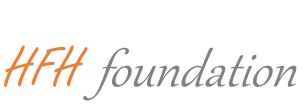about us
The Kidney Foundation of Ohio is dedicated to providing a broad-based program of direct assistance to those with kidney disease and promoting and providing educational programming for the general public, renal professionals, and patients and their families. It is our goal that all people with renal disease or transplant recipients will be accepted in the community and have a measurably improved quality of life and function as a result of the services provided by the Kidney Foundation of Ohio.

The Foundation serves a thirty-two county area in northern and eastern Ohio and supports two affiliate chapters in Lake and Summit Counties. There are five counties supported by the organization in West Virginia to assist individuals who cross into Ohio for treatment.
What began as a small group of families and physicians has become the premier agency in Ohio for providing direct assistance and education to those suffering from the effects of kidney failure. The Kidney Foundation remains the only health and human services agency in Northeast Ohio which continues to provide direct dollars to patients to assist through the devastation of kidney disease. The Foundation remains an Ohio-based organization and all funds raised in Ohio, stay in Ohio to help our patients.
History
The Cleveland-based Foundation was founded in 1950 by a group of parents whose children suffered with nephrosis and physicians from Mount Sinai and University Hospitals. As medical advances were made in the renal field, the Kidney Foundation of Ohio’s scope of services and coverage area grew. Initially, the small group of parents and physicians sought to provide services for patients suffering from kidney disease and to encourage and assist basic research. The Foundation soon began to develop educational programs to create professional and public interest.
By 1969, the Committee on Donor Enlistment (CODE) was established by the Foundation to encourage the public to carry organ donor cards and to donate kidneys upon death. CODE was one of the first, of the seven original, independent organ procurement organizations in the United States. In the 1970s, a partnership was formed with the Cleveland United Labor Agency and mobile clinics were integrated into the community to provide dialysis to patients needing treatment.
The Foundation has maintained a strong commitment to both professional and public education. This led to the creation of the Nephrology Fellowship for Northeastern Ohio researchers, and in 1975, the Kidney Foundation of Ohio Renal Symposium. The Symposium was recognized as high-quality education for renal healthcare professionals. In the late 1970s, the Organ Recovery Fund was established to support organ donation. Over the years, the Foundation worked closely with Eversight Ohio (formally Cleveland Eye Bank) and later on Lifebanc, to promote awareness of the need for organ donation.
In the early 1990s, financial assistance programs were formed to support patients with medication, transportation, and emergency needs. These supportive services have saved the lives of thousands of renal patients since its inception. For children ages 5-18, dialysis camps were held at Red Raider Camp (Novelty, Ohio) and Camp Cheerful (Strongsville, Ohio) providing kids with the ability to attend a week-long camp that delivered the necessary onsite dialysis treatments. During this time, a council of social workers were convened to represent the concerns and practice issues of the social worker within the field of nephrology and transplantation. This professional group convened three to four times annually to learn about new and existing practices in renal social work. In the early 2000, other disciplines joined to address the gap in communication between dialysis and transplant, and target steps to improve the competency of staff regarding treatment options for patients. This evolved into educational sessions for all renal healthcare professionals that provided continuing education credits.
In partnership with Cleveland MOTTEP (Minority Organ Tissue Transplant Education Program), in 2006, the Foundation began holding Healthy Teens, Healthy Tomorrow: Teen Summits which was an educational program intended to empower minority teens with information on organ donation and healthy lifestyle choices. These summits included breakout sessions on: nutrition & wellness, body & kidney health, organ/tissue donation, and transplantation.
Due to the dissolution of the Diabetes Partnership of Cleveland in early 2017, the Kidney Foundation of Ohio launched an emergency insulin program to assist uninsured and underinsured diabetic patients in Cuyahoga County. Diabetes continues to be the leading cause of Chronic Kidney Disease.
our Supporters
The work we do would not be possible without the generous support of our donors. We would like to thank all of the individuals, corporations, organizations, and foundations that have supported us in the past and continue to support us in the future. To learn more about sponsorships and partnering with the Kidney Foundation of Ohio, contact the Foundation’s Development Department at (216) 771-2700.
The Kidney Foundation of Ohio is proud to be a partner agency of the Norwalk United Fund and Ashland, Ashtabula, and Portage United Ways.
our staff
- Kelly Dowling
Executive Director - Annette Fetter
Director of Development - Emily Powell
Assistant Development Director - Jennifer Clegg
Client Services & Community Manager - Sharon Grobelny
Administrative Coordinator - Carolyn Henretta
Director, Summit County Chapter - Preston Moss
President, Lake County Chapter
board of directors
- Chairperson – Sheri Beck-Eyssen
- Treasurer – Sally Balch
- Immediate Past Chair – Chuck Smith
- Secretary- Bob Grossman
- Vice Chair - Deborah A. Damas
- Vice Chair - Richard Fatica, MD
- Vice Chair - Stephen Roberts
- Vice Chair - Gary Robinson
- Vice Chair - Jeffrey R. Schelling MD
- Vice Chair - John R. Sedor MD
- Vice Chair - Leslie A. Wazbinski
- Medical Advisory Chair - Arianna M. Aoun, MS, RD, CSR
- Tony Antonelli
- Ron Flauto, DO
- Robert Glickman, Esq.
- Brad Harmon
- Lynn Kalinowski
- Daniel McKeon
- Romeo Miclat, MD
- Lisa Redmond MS, RD, LD
- William T. Reiff
- Georges Saab, MD, FASN
- Jennifer Seaman
- Michael Stavnicky, Esq.
- Tiffani Tucker











